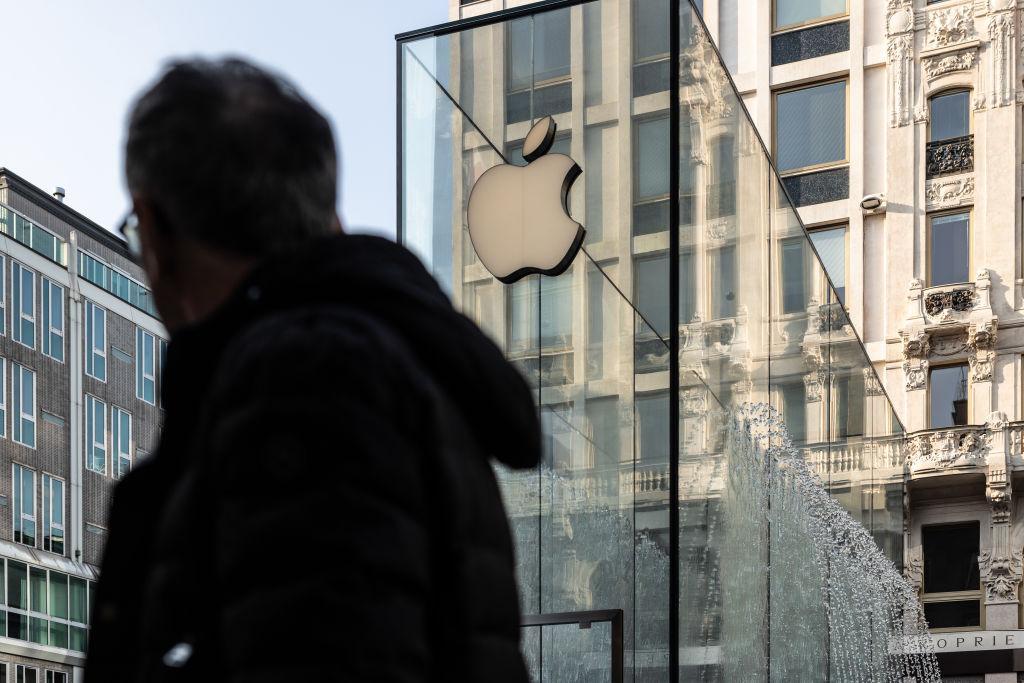The EU’s flagship tech law has failed to ignite meaningful engagement with Big Tech and is overwhelmed by the sheer size of the companies it aims to regulate, a leading competition economist has warned.
Dr Cristina Caffarra, an antitrust economist at the Centre for Economic Policy Research, told a conference in Brussels on May 13 that the Digital Markets Act (DMA) is being neutralised by long procedures, limited tools and the scale of those Big Tech firms it is expected to police.
“Cases started against Big Tech in Europe have achieved absolutely nothing in terms of starting the dialogue; nothing has been effective,” Dr Caffarra said.
The European Commission spokesperson for Tech Sovereignty told Brussels Signal on May 14 that “the Commission is regularly engaging with gatekeepers to ensure compliance with the Digital Markets Act in the EU”.
Dr Caffarra argued that the current enforcement model was too slow to make an impact.
“We started these investigations years ago; the reality of antitrust regulation in Europe is that it is too slow,” she said. “Changes the DMA hopes to bring are impossible to introduce because by the time they come, it is far too late.”
The Commission spokesperson cited a series of technical compliance workshops organised with gatekeepers as evidence of the progress it is making. One workshop was held with Booking.com last year, with further sessions scheduled for June and July with Microsoft, Amazon, Apple, Alphabet, ByteDance and Meta. These events are meant to “hear [the gatekeepers’] views on measures they must implement”, the spokesperson said.
The executive also defended its record on enforcement. Since the DMA became applicable in March 2024, it has launched multiple proceedings for suspected breaches with both Apple, Meta and Alphabet currently under investigation. Further proceedings include cases on ‘steering’ rules in app stores, preferential treatment in search results, Apple’s contract terms, and Meta’s ‘pay or consent’ model.
Three of those cases — involving Apple and Meta — have already led to formal decisions and fines. Apple was found in breach of anti-steering obligations and fined €500 million. Meta was fined €200 million for failing to provide users a real choice over how their data is used. Both firms have been given 60 days to comply.
Dr Caffarra warned that these efforts may not be enough. “Big Tech completely overwhelmed European regulators,” she said.
However, in addition to enforcement, the Commission has launched so-called ‘specification proceedings’ under the DMA to clarify how companies must comply. Two such decisions were sent to Apple, including on enabling interoperability between iOS and third-party connected devices. These mechanisms are designed to provide clarity, but are not enforcement actions themselves.
Dr Caffarra linked the challenges facing digital enforcement to broader concerns about EU competitiveness. “Draghi said the economic model is unsustainable,” she said, referring to work led by former president of the European Central Bank Mario Draghi. “The Chinese produce more cars than we can ever buy and we have missed the boat both on electric vehicles and on AI.”
“This has pushed the Commission to rethink competitiveness, and how the EU can achieve growth.”
The EC is facing mounting questions about the clarity and practical effect of its digital rules.
In March 2025, it launched its first formal DMA proceedings — nearly a year after the Act came into force. Those came on top of earlier fines imposed on Apple and Meta under other legal instruments — such as the GDPR and antitrust law — which the companies are now appealing in court.
By mid-May 2025, three of the DMA cases — two involving Alphabet and one involving Apple — had reached the preliminary findings stage, which allows companies to respond before final decisions are taken.





